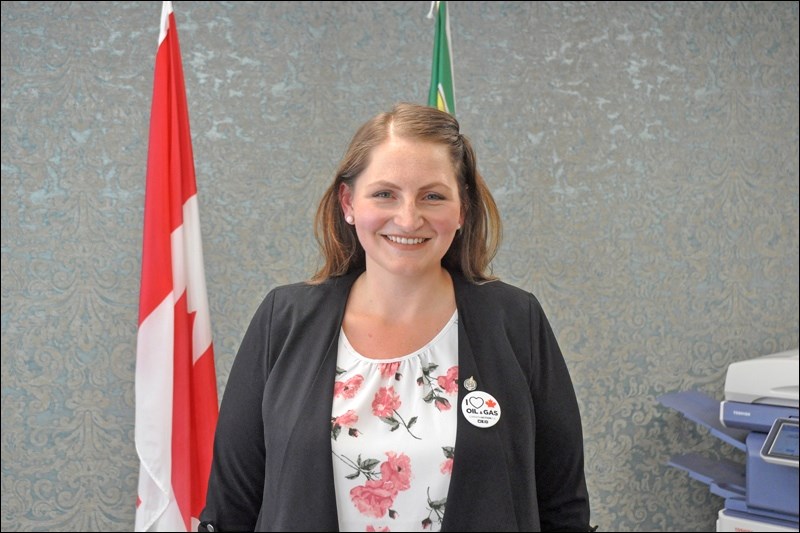Conservative MP Rosemarie Falk is waiting for Prime Minister Justin Trudeau to call an election.
Visitors stopped by Falk’s North Battleford office at 1322-100th St. on Friday for a meet-and-greet with the Member of Parliament. Falk has been MP of the Battlefords-Lloydminster riding since winning the seat in a by-election in late 2017.
Falk’s upcoming plans include lots of door knocking. Many people are willing to volunteer, Falk said, “to make this prime minister a one-term prime minister.”
Commenting on recent months, Falk said “it’s clear that the prime minister is more concerned about himself and his friends and making sure that they’re above the law, which isn’t fair to everyday Canadians because we all have to abide by the law.”
Falk called former Minister of Justice Jody Wilson-Raybould “an amazing attorney general,” and said the Liberals expelling her from the party was “appalling.”
The upcoming federal election will be about affordability, Falk said, and the Conservative plan involves increasing affordability with less taxes.
Falk said a Conservative government would repeal the carbon tax. Some provincial governments including Saskatchewan’s have opposed the Liberal carbon tax plan, and Falk said the provinces want to “be good stewards of the environment without hindering the taxpayer.”
Falk criticized the Liberals’ handling of the situation with China, saying the conflict “shouldn’t have gotten to this point” and that it should have been resolved already.
In speaking with agricultural organizations, Falk said cattlemen “feel like they’re not being heard.”
As a social worker, Falk said her work has taught her the skills of empathy “which is very much different that sympathy,” she said.
“Empathy is … having the ability to understand and walk with the patient or the client with what they’re going through, which I think is very important,” Falk said.
“Making advancements on issues isn’t just apologizing and saying sorry,” Falk said, “it’s actually making tangible change.”
Regarding immigration, the Conservative Party, Falk said, believes in “fair, legal immigration,” and said the economy needs immigration.
But “we can’t just open up the borders,” Falk said.
Conservative leader Andrew Scheer has also promised no cuts in health or social transfer payments, or education or health cuts from the federal government to the provinces, Falk said.
Centralization of power?
Commentators and academics have worried about the federal government’s centralization of power in the prime minister’s office under Stephen Harper’s Conservative government and Trudeau’s Liberals, as well as their governments’ use of omnibus bills.
Omnibus bills are large proposals for legislation that can be on a wide variety of topics. During Harper’s years, the party proposed Bill C-38, which numbered over 400 pages.
According to Canadian Lawyer magazine, the big bills can be a problem because they cause MPs to vote with an all-or-nothing approach.
On the campaign trail four years ago, Trudeau said he’d govern differently. Some commentators and academics say centralization and omnibus bills have continued nonetheless.
A few years later, Trudeau’s Bill C-74 was over 550 pages.
When asked about omnibus bills, Falk responded, “I think in order for government to get anything done, I think [omnibus bills are] something that’s always going to happen.”
“I think that’s just the way our process is,” Falk said.
She said she couldn’t speak more specifically due to not knowing who would be in prominent positions upon the formation of a Conservative government, and the possible majority/minority situation.
Canada last had a minority government in 2011.
Falk also said provincial jurisdiction “needs to be respected,” but federal intervention would be justified on matters relating to natural resource development deemed to be “in the country’s best interest.”




